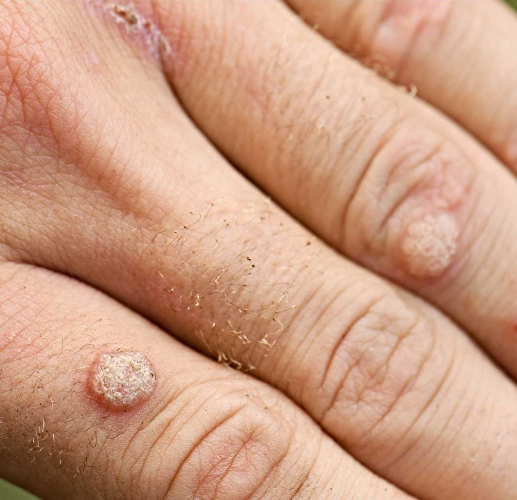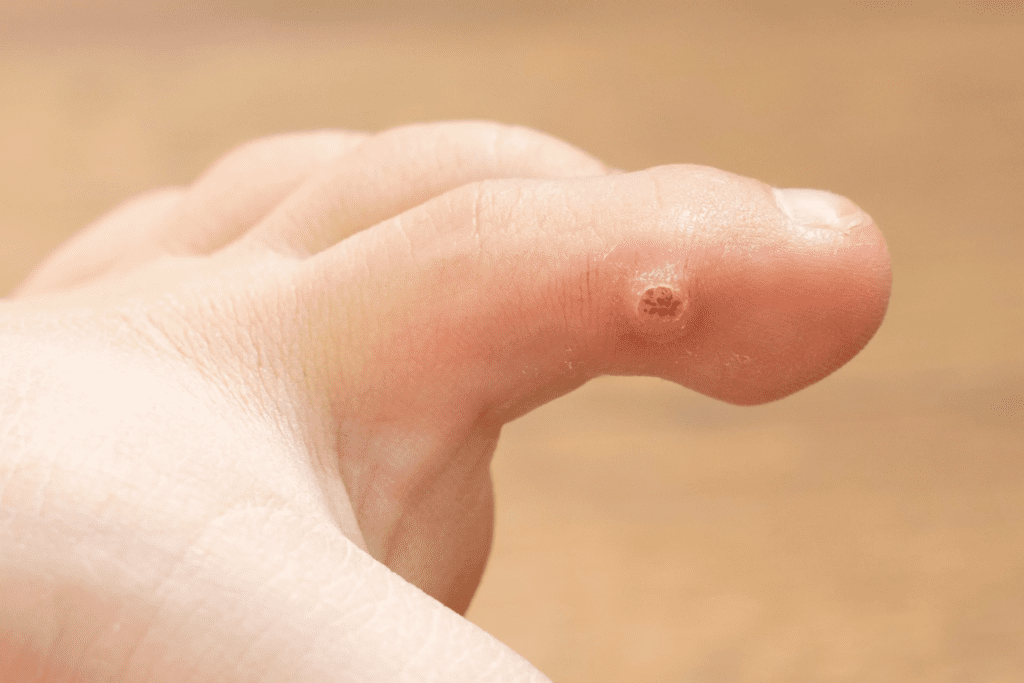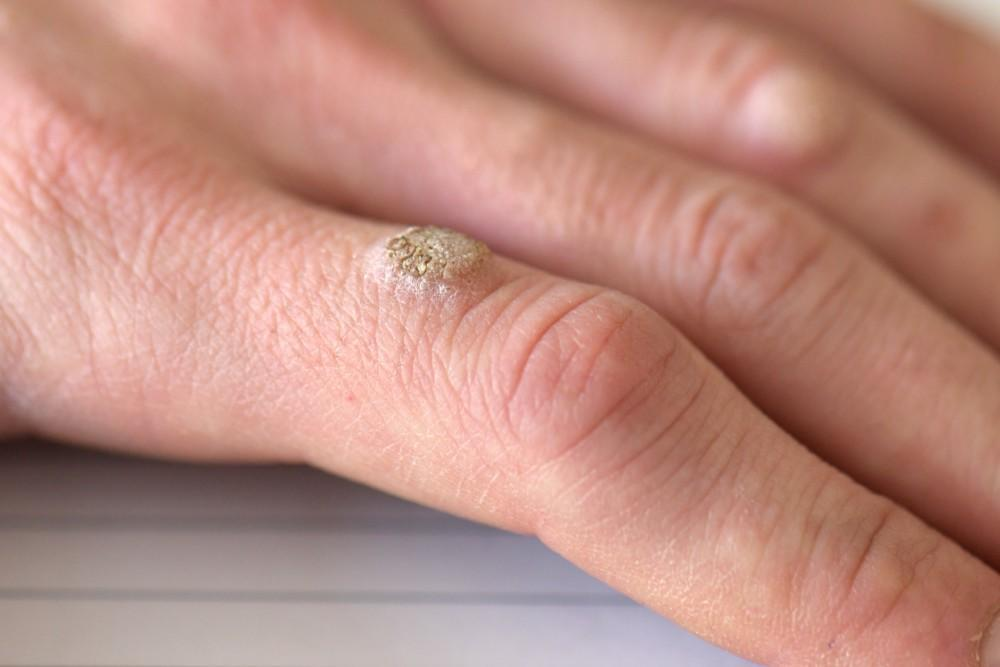Warts—those pesky, unsightly bumps that show up on your skin—can be frustrating and embarrassing. Caused by the human papillomavirus (HPV), warts affect millions of people worldwide. While they’re usually harmless, they can spread and become a real nuisance. That’s when people start thinking about DIY wart removal. But before you reach for a home remedy, stop right there! Removing warts on your own isn’t just ineffective—it can lead to complications like infections and scarring. So, what should you do instead? Let’s dive into the right way to handle warts safely and effectively.
Why You Should Avoid DIY Wart Removal

It’s tempting to try at-home methods to get rid of warts, but trust me—those quick fixes aren’t always as easy or safe as they seem. From duct tape to over-the-counter acid treatments, these home remedies come with risks. When you mess with warts, you’re dealing with a virus that can easily spread to other parts of your body or even to others. Not to mention, self-removal can leave you with scars or worse, a nasty infection. You don’t want to swap one problem for another, right?
Instead of trying to fix the issue on your own, let’s talk about why professional care is the smarter choice.
Consult a Healthcare Professional First
The number one rule for wart removal: Always consult a healthcare provider or dermatologist before doing anything. Why? Because warts come in different shapes and sizes, and not all of them are harmless. A doctor can diagnose the type of wart you have and recommend the most effective treatment.
For example, plantar warts (those on the soles of your feet) require different care than common warts on your hands. A healthcare provider will guide you toward the safest treatment based on your specific case. You wouldn’t self-diagnose other medical conditions, so why risk it with warts?
Professional Wart Removal Treatments Are More Effective
If you’re dealing with stubborn warts, professional treatments offer a safe and efficient way to remove them without the risks of at-home remedies. Medical professionals have access to several advanced techniques that aren’t available over the counter. Here are a few common professional treatments for warts:
- Cryotherapy: This is one of the most common methods. Your doctor will freeze the wart with liquid nitrogen, causing the tissue to die and fall off within a few days.
- Laser Therapy: Using focused light, a dermatologist can target and destroy wart tissue.
- Prescription Medications: There are stronger topical treatments that are only available through a doctor’s prescription. These are often more effective than what you can buy at a drugstore.
The takeaway? A professional can provide you with a treatment that works—and reduces the chances of the wart coming back.
Why Over-the-Counter Products Might Not Be the Best Choice
Over-the-counter wart removal products can seem like a quick solution, but they come with downsides. Many of these products contain harsh chemicals, like salicylic acid, which can irritate or damage the surrounding healthy skin if not used correctly. You may end up with redness, burning, or peeling, making things worse instead of better.
Plus, without professional guidance, you could be misdiagnosing the type of wart you have, which means you might not even be using the right product. So, before you stock up on those store-bought wart removers, consider that they may not be the safest or most effective choice for everyone.
Keep Warts From Spreading: Practice Good Hygiene
One of the biggest problems with warts is how easily they spread. Whether it’s to other parts of your body or to someone else, warts are highly contagious. Practicing good hygiene can help you manage and reduce the spread of warts. Here’s what you should be doing:

- Wash Your Hands Frequently: After touching a wart, wash your hands thoroughly. This prevents the virus from spreading to other areas.
- Don’t Pick at Warts: It can be tempting to scratch or pick at a wart, but this can lead to more warts showing up. Picking at them also increases the risk of infection.
- Keep Warts Covered: If your wart is in an area prone to contact, like your hands or feet, keep it covered with a bandage. This limits exposure and reduces the risk of spreading the virus.
Good hygiene can go a long way in preventing warts from becoming a bigger issue.
Boost Your Immune System to Fight Warts Naturally
While proper medical care is essential, don’t underestimate the power of your body’s own defenses. Since warts are caused by a virus, strengthening your immune system can help your body fight off the infection more effectively. Here are some ways to give your immune system the support it needs:
- Eat a Balanced Diet: Foods rich in vitamins and antioxidants—like fruits, vegetables, and lean proteins—can boost your immune response.
- Stay Active: Regular exercise not only helps with overall health but also strengthens your immune system.
- Get Enough Sleep: Your body repairs itself while you sleep, and not getting enough rest can weaken your immune function.
- Manage Stress: High levels of stress can suppress your immune system, making it harder for your body to fight off infections like warts.
By taking care of your overall health, you can give your body a better chance to ward off future warts.
Don’t Wait—Take Action Against Warts Safely

Warts might seem like a minor issue, but they can quickly become a bigger problem if you try to handle them on your own. DIY wart removal methods are risky, and over-the-counter products aren’t always the best solution. Your best bet is to consult a healthcare professional, practice good hygiene, and keep your immune system strong.
By following these steps, you’ll not only get rid of warts faster but also prevent them from returning. So, the next time you’re tempted to deal with a wart on your own, remember: It’s always smarter to seek professional care.
Conclusion
In conclusion, warts are a common skin issue, but they require proper care and treatment. While it may seem easy to remove them at home, doing so can lead to unwanted complications like infections, scarring, and further spread of the virus. Instead, consult a healthcare professional for safe, effective treatment options. Combine that with good hygiene and a strong immune system, and you’ll be well on your way to clear, healthy skin.


